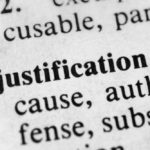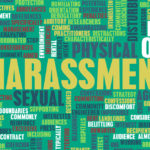Category Archives: Employment Discrimination

Can A Discriminatory Failure To Promote Be Proven With Evidence That An Unqualified Individual Was Selected?
Title VII of the Civil Rights Act of 1964 (Title VII) prohibits an employer from discriminating against any individual with respect to his or her compensation, terms, conditions, or privileges of employment because of such individual’s race, color, religion, sex, or national origin. Under Title VII, employees are protected against discrimination with respect to… Read More »

Why Do Employers Try To Get Employees To Quit?
Under federal employment discrimination laws, unlawful discrimination occurs when an employer takes an adverse employment action against an employee for a discriminatory reason. Under the anti-retaliation provisions of federal employment discrimination laws, unlawful retaliation occurs when an employer takes an adverse employment action against an employee for a retaliatory reason. Courts have determined that… Read More »

Does Federal Law Prohibit Employment Agencies From Engaging In Discriminatory Advertising?
Title VII of the Civil Rights Act of 1964 (Title VII) prohibits employers from discriminating against employees on the basis of race, color, national origin, sex, or religion. As explained by the U.S. Supreme Court in McDonnell Douglas Corp. v. Green, 411 U.S. 792 (1973), Congress passed Title VII “to ensure equality of employment… Read More »

Can A Formulated Plan To Fire An Employee Be Evidence Of Discrimination?
As observed by the U.S. Third Circuit Court of Appeals in Sheridan v. E.I. DuPont de Nemours & Co., 100 F.3d 1061 (3d Cir. 1996), “cases charging discrimination are uniquely difficult to prove and often depend upon circumstantial evidence.” Indeed, the U.S. Second Circuit Court of Appeals explained in Chambers v. TRM Copy Ctrs…. Read More »

Is An Employer’s Violation Of Its Own Promotion Policies Evidence Of A Discriminatory Failure To Promote?
Federal employment discrimination laws make it an unlawful employment practice for an employer to fail or refuse to promote an employee on the basis of race, color, religion, sex, pregnancy, national origin, age, or disability. Having extensive experience representing employees discriminatorily denied promotion, our Citrus County, Florida employment discrimination attorneys have learned that employers… Read More »

Can A Termination Decision Which Exhibits Bad Business Judgment Be Evidence Of Discrimination?
In the employment discrimination context, employers do not have to establish “good cause” for a termination decision. As explained by the U.S. Eleventh Circuit Court of Appeals in Damon v. Fleming Supermarkets of Florida, Inc., 196 F.3d 1354 (11th Cir. 1999), “an employer may fire an employee for a good reason, a bad reason,… Read More »

Court Finds Employee Entitled To Jury Trial On Discriminatory Failure To Promote Claim After Evaluating Evidence As A Whole
Title VII of the Civil Rights Act of 1964 (Title VII) prohibits employers from discriminating against employees because of their race, color, national origin, sex, or religion. It is well-established that failing to promote an individual because of his or her race, color, national origin, sex, or religion is an unlawful employment practice under… Read More »

Employee Provides Job Applicant With Information Reflecting A Retaliatory Failure To Hire
Title VII of the Civil Rights Act of 1964 (Title VII) protects employees from retaliation when complaining about discrimination in the workplace, including filing a charge of discrimination with the U.S. Equal Employment Opportunity Commission (EEOC). Having substantial experience litigating employment retaliation cases, our Central Florida retaliation attorneys have learned that it is not… Read More »

Are After-The-Fact Justifications For An Employment Decision Evidence Of Discrimination?
In the employment discrimination litigation context, employers are required to come forward with a legitimate, non-discriminatory reason for the challenged employment decision. Generally, employers are not permitted to justify an employment decision based on information uncovered after the decision was made. In other words, information discovered after the employment decision was made cannot form… Read More »

Can Remarks Made After An Employee’s Termination Be Used To Show A Discriminatory Discharge?
In the context of employment discrimination law, courts have consistently held that evidence establishing that an employer’s asserted reason for the challenged employment decision is false creates an inference that the employer might be covering up a discriminatory motive. In fact, courts have determined that a jury is permitted to infer a discriminatory motive… Read More »


 Close Menu
Close Menu